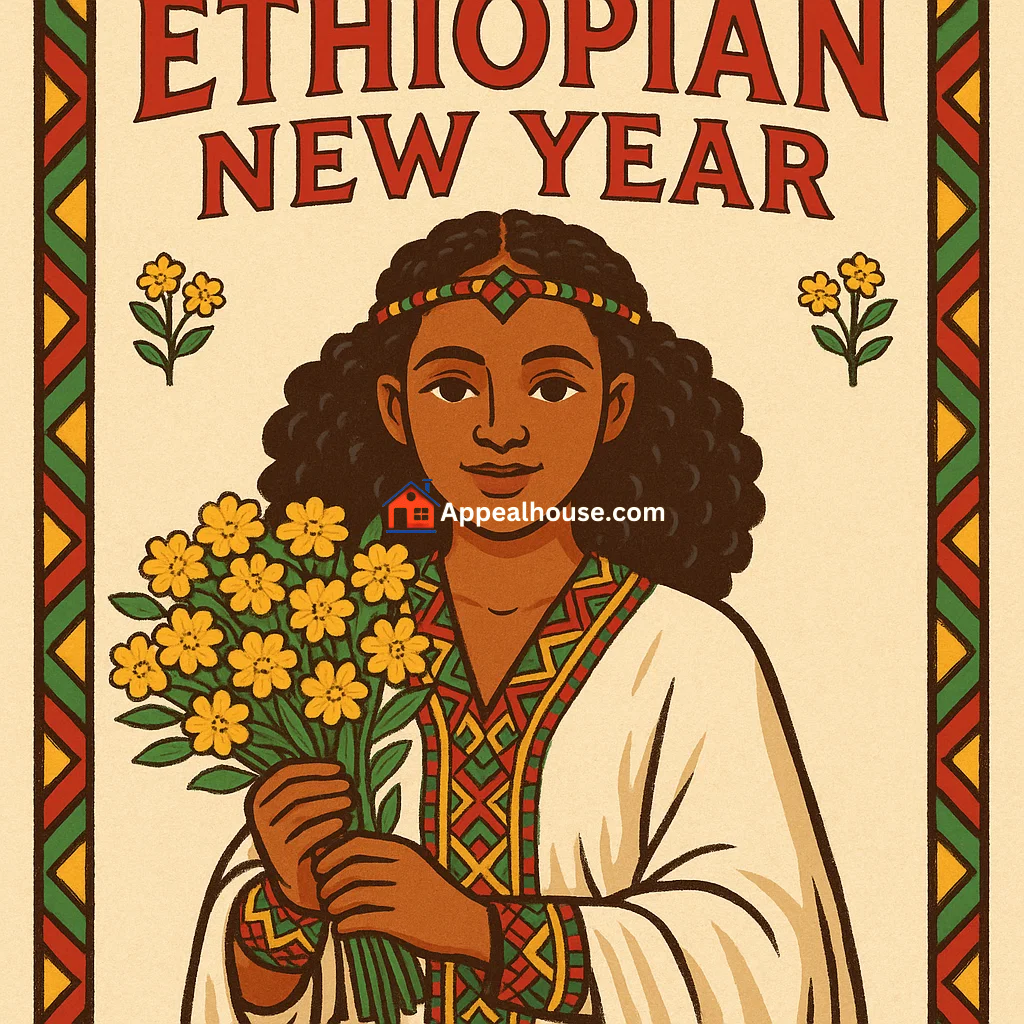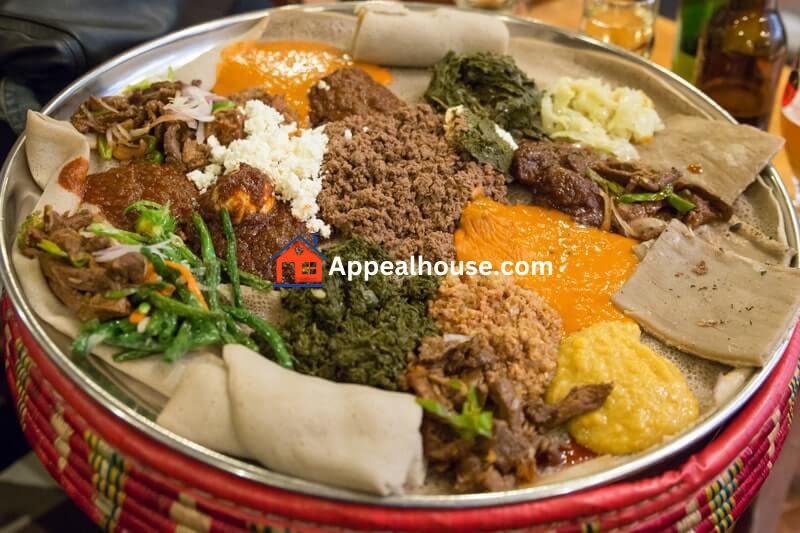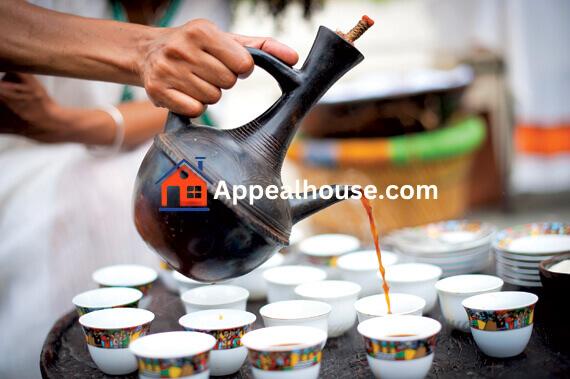
Discover Ethiopian New Year, Enkutatash. Learn about the unique Ethiopian calendar, vibrant celebrations, traditional foods, and how this special festival unites communities across Ethiopia every September.
Table of Contents
Ethiopian New Year: Enkutatash

As the chilly and rainy nights of Addis Ababa gradually give way to warmer, sunnier mornings, a fresh excitement fills the air. The fields become adorned with tiny yellow daisies known as Adey Abeba. These delicate flowers, symbolizing hope and new beginnings, bloom at the close of the rainy season, signaling the arrival of a special celebration: the Ethiopian New Year, called Enkutatash.
Seasonal Significance
Enkutatash is the traditional Amharic name for the Ethiopian New Year, celebrated nationwide on September 11th or 12th each year. Ethiopia follows its own unique calendar, distinct from the Gregorian system used in most countries. This calendar resembles the Coptic calendar and consists of twelve months of 30 days plus a short 13th month with 5 or 6 days during leap years. Enkutatash marks the transition from the heavy rains of Kiremt to the harvest season known as Tsedey. It also begins a series of major holidays over six months, including Mesqel, Mawlid, Genna, and Timket, making it a highly anticipated time.
When Is Ethiopian New Year?
| Gregorian Year | Ethiopian New Year Date |
|---|---|
| 2031 | September 11 |
| 2032 | September 12 (Leap Year) |
| 2033 | September 11 |
| 2034 | September 11 |
| 2035 | September 11 |
| 2036 | September 12 (Leap Year) |
| 2037 | September 11 |
| 2038 | September 11 |
| 2039 | September 11 |
| 2040 | September 12 (Leap Year) |
| 2041 | September 11 |
| 2042 | September 11 |
| 2043 | September 11 |
| 2044 | September 12 (Leap Year) |
| 2045 | September 11 |
| 2046 | September 11 |
| 2047 | September 11 |
| 2048 | September 12 (Leap Year) |
| 2049 | September 11 |
| 2050 | September 11 |
A Celebration for the Youth
Enkutatash strongly embodies the themes of hope and renewal. Children, especially, play a lively role in the festivities. Young girls dress in vibrant traditional attire as they visit neighbors, singing and clapping to the rhythm of drums in a song called Abebayehosh. Boys go door to door distributing handmade drawings announcing the New Year. In return, children often receive small treats such as bread or money.
Traditional Foods and Drinks

Homes buzz with activity as families prepare traditional dishes to mark the occasion. Women often cook specialties like doro wet (a spicy chicken stew with boiled eggs served with injera flatbread), q’ey wet, and alecha. Men usually handle the preparation of meat by slaughtering animals for the feast. Traditional beverages like t’ej (honey wine) and t’ela (a beer made from teff or sorghum) are also brewed to accompany the meals.
The Coffee Ceremony

No Ethiopian New Year celebration is complete without the coffee ceremony. The family gathers around the jebena (clay coffee pot) and rekebot (traditional coffee set). Freshly cut grass (qetema) is spread on the floor, and the fragrant scent of burning frankincense fills the room, blending beautifully with the aroma of roasting coffee beans. This ceremony fosters warmth and togetherness.
Unity in New Beginnings
Enkutatash is more than a holiday; it is a moment of genuine unity where Ethiopia’s diverse ethnic groups come together to celebrate hope, renewal, and fresh starts.
Ethiopian New Year Wishes in Amharic (with English meanings)
- አዲሱ ዓመት የሰላም የፍቅርና የመተሳሰብ ይሁንልን።
May the new year bring peace, love, and understanding. - ያሰብነው የሚሳካበት፣ ያቀድነው የሚሰምርበት ዓመት ይሁልን።
May it be a year where all dreams are realized and plans succeed. - ከዓመት ዓመት ያድርሰን፣ መልካም አዲስ ዓመት።
Wishing you a prosperous New Year. - ይህ ዓመት ከሁሉም ምርጡ እንዲሆንላቹ…እመኛለሁ
May this year be the best of all, filled with endless joy and fulfilled goals. - አዲሱ ዓመት ቤትዎን በደስታ፣ ልብዎን በፍቅር፣ ህይወትዎንም በሳቅ ይሙላው።
May the new year fill your home with happiness, your heart with love, and your life with laughter. - አዲሱ ዓመት የሰላም፣ የጤና የብልፅግና ይሁንላችሁ!
Wishing you a new year of peace, health, and prosperity! - እንኳን አደረሳችሁ፤ አዲሱ ዓመት የሰላም፣ የጤና፣ የብሩህ ተስፋና የስኬት እንዲሆንልዎ እንመኛለን።
Happy New Year! May it bring peace, health, bright hopes, and success.
Related Useful Tools on Our Site
Besides showing the Ethiopian date today, our site offers:
- Ethiopian to Gregorian Date Converter: Convert any date instantly.
- Gregorian to Ethiopian Date Converter: For scheduling and documentation.
- Ethiopian Time Converter: Understand the unique Ethiopian time system.
- Convert Ethiopian Time to GMT: to Convert Ethiopian Time to GMT
What is Enkutatash?
Enkutatash is the Ethiopian New Year, celebrated on September 11th (or 12th in leap years). It marks the end of the rainy season and the beginning of a new year according to the Ethiopian calendar.
Why does the Ethiopian New Year fall in September?
Ethiopia follows its own calendar, which is about 7–8 years behind the Gregorian calendar and consists of 13 months. Enkutatash falls in September because that is when the Ethiopian calendar starts its new year.
How is the Ethiopian New Year celebrated?
The celebration includes traditional singing and dancing, children going door-to-door with flowers and drawings, family feasts with special dishes like doro wet, and the famous Ethiopian coffee ceremony.
What is the significance of the Adey Abeba flower during Enkutatash?
Adey Abeba, a small yellow daisy, blooms at the end of the rainy season and symbolizes hope, renewal, and the coming of a fresh new year.
Does the Ethiopian New Year coincide with other holidays?
Enkutatash starts a festive season that includes other major Ethiopian holidays such as Mesqel, Mawlid, Genna (Ethiopian Christmas), and Timket (Epiphany).
